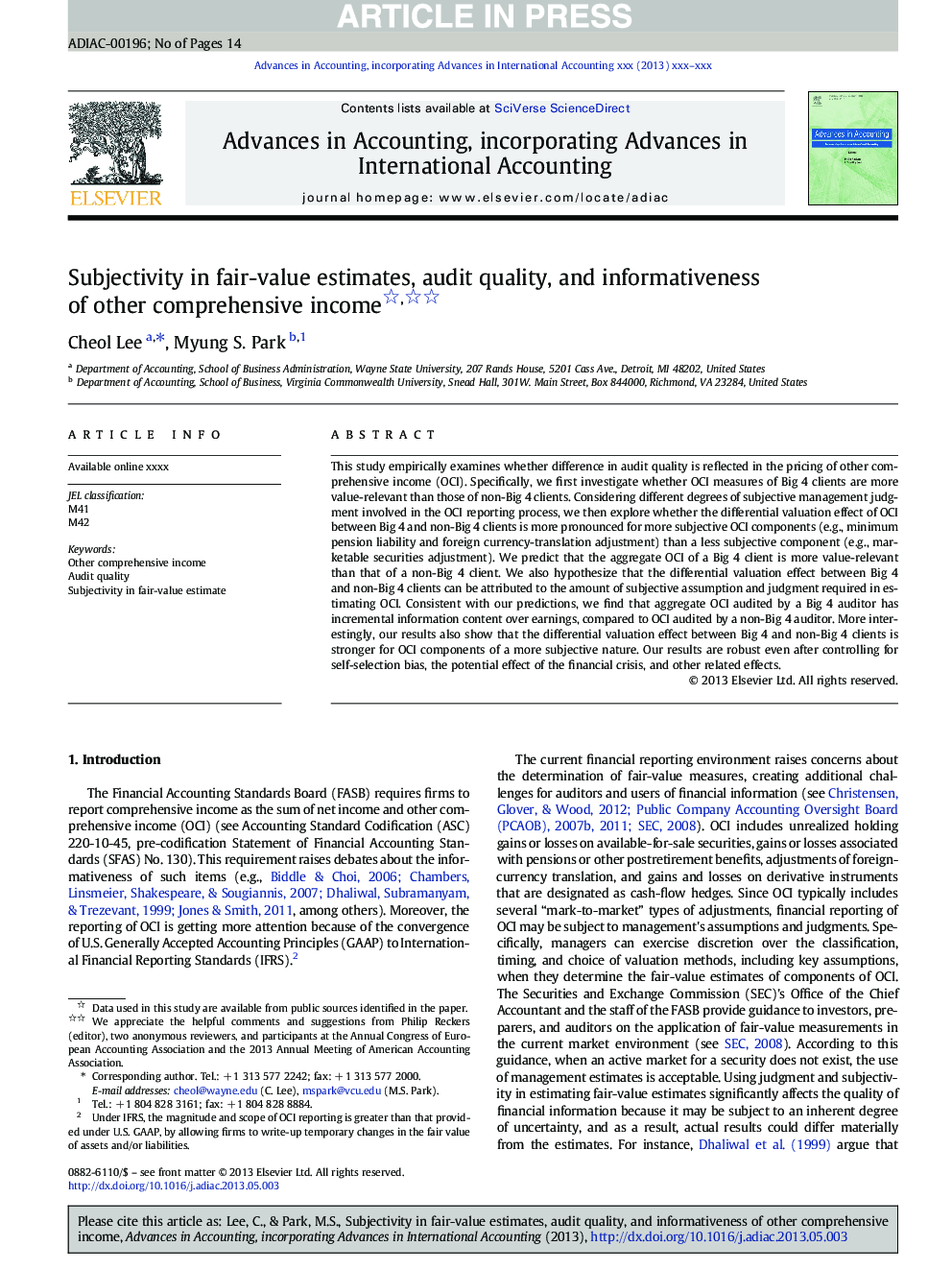| Article ID | Journal | Published Year | Pages | File Type |
|---|---|---|---|---|
| 7340539 | Advances in Accounting | 2013 | 14 Pages |
Abstract
This study empirically examines whether difference in audit quality is reflected in the pricing of other comprehensive income (OCI). Specifically, we first investigate whether OCI measures of Big 4 clients are more value-relevant than those of non-Big 4 clients. Considering different degrees of subjective management judgment involved in the OCI reporting process, we then explore whether the differential valuation effect of OCI between Big 4 and non-Big 4 clients is more pronounced for more subjective OCI components (e.g., minimum pension liability and foreign currency-translation adjustment) than a less subjective component (e.g., marketable securities adjustment). We predict that the aggregate OCI of a Big 4 client is more value-relevant than that of a non-Big 4 client. We also hypothesize that the differential valuation effect between Big 4 and non-Big 4 clients can be attributed to the amount of subjective assumption and judgment required in estimating OCI. Consistent with our predictions, we find that aggregate OCI audited by a Big 4 auditor has incremental information content over earnings, compared to OCI audited by a non-Big 4 auditor. More interestingly, our results also show that the differential valuation effect between Big 4 and non-Big 4 clients is stronger for OCI components of a more subjective nature. Our results are robust even after controlling for self-selection bias, the potential effect of the financial crisis, and other related effects.
Related Topics
Social Sciences and Humanities
Business, Management and Accounting
Accounting
Authors
Cheol Lee, Myung S. Park,
